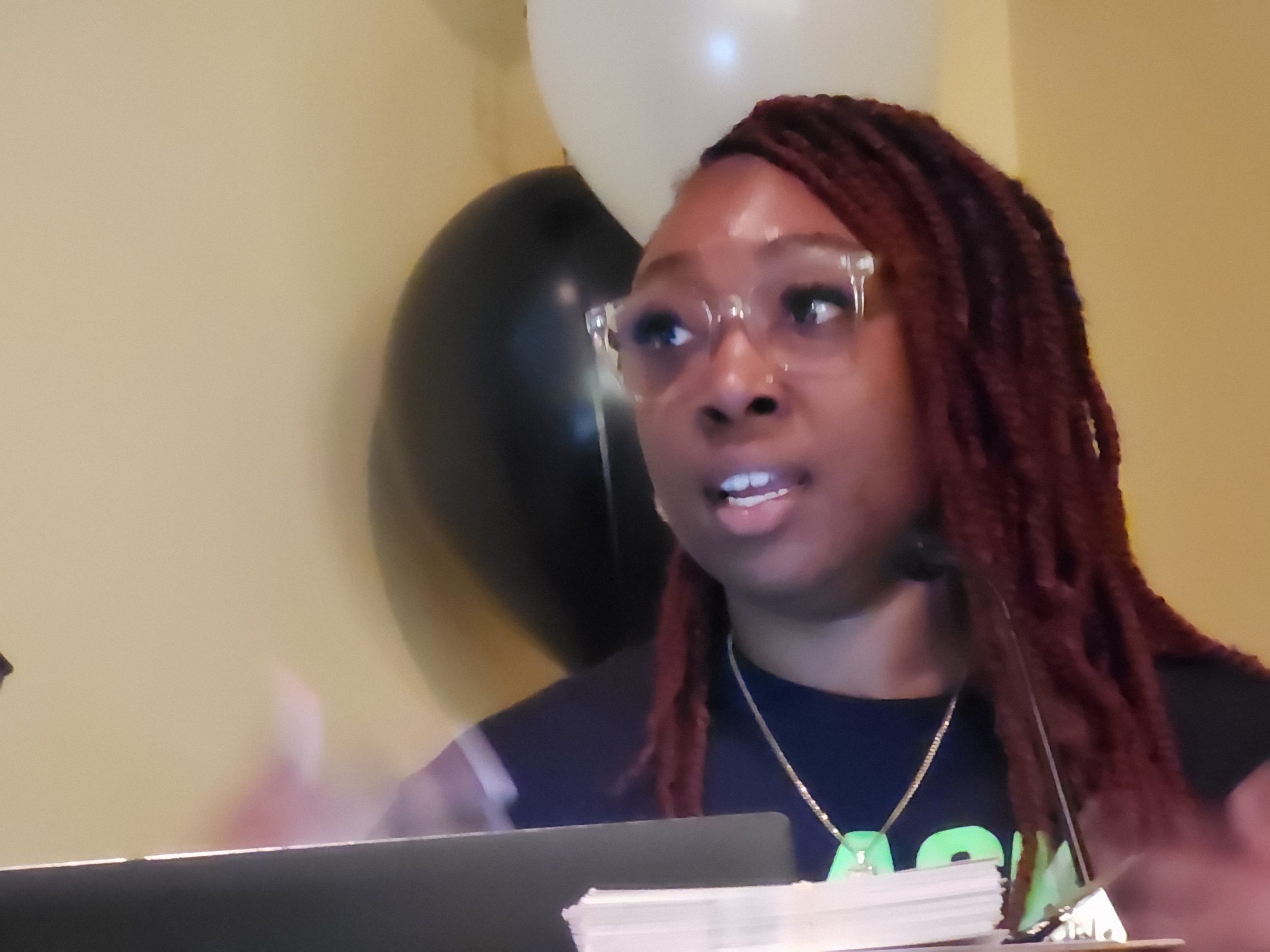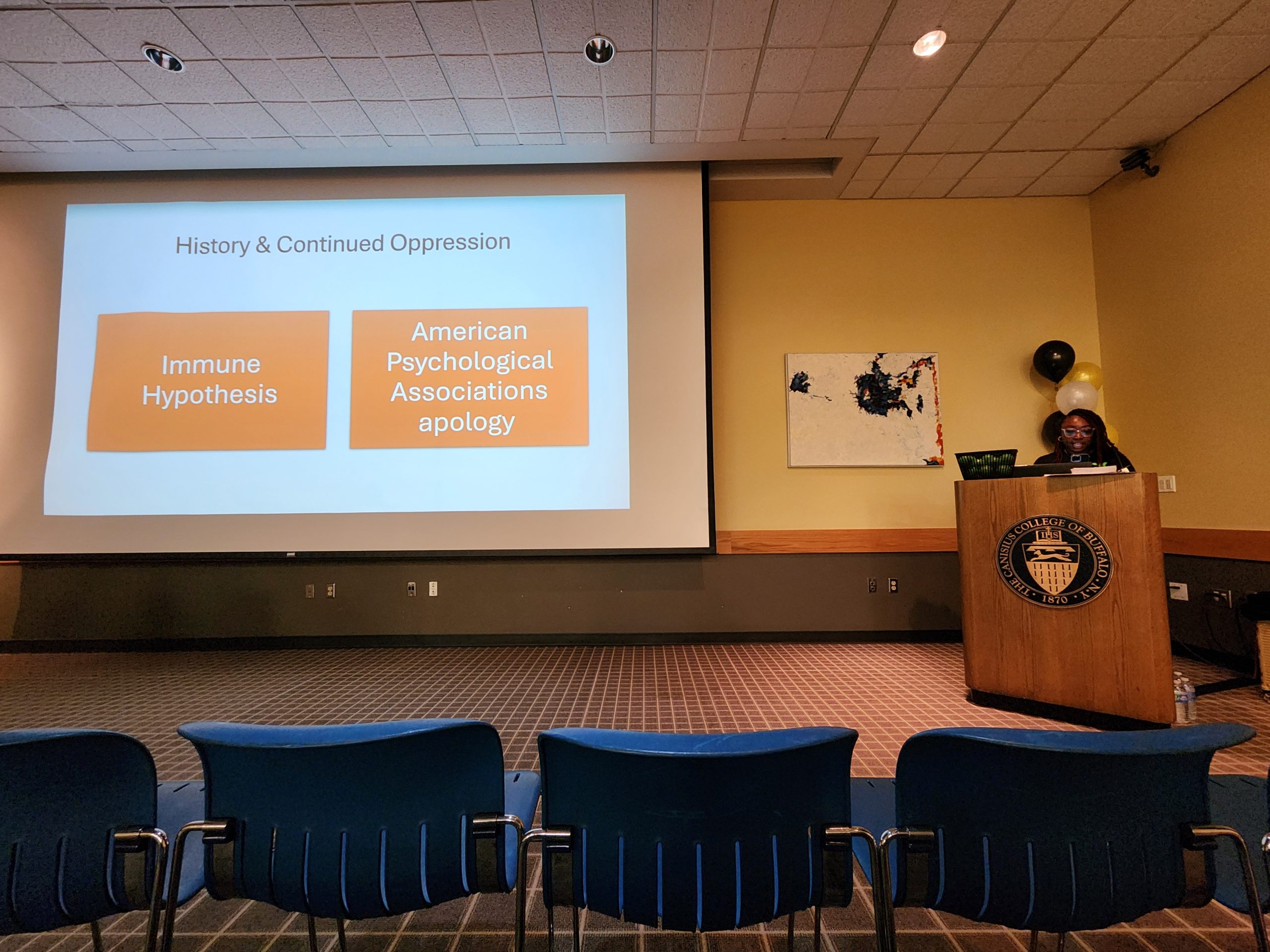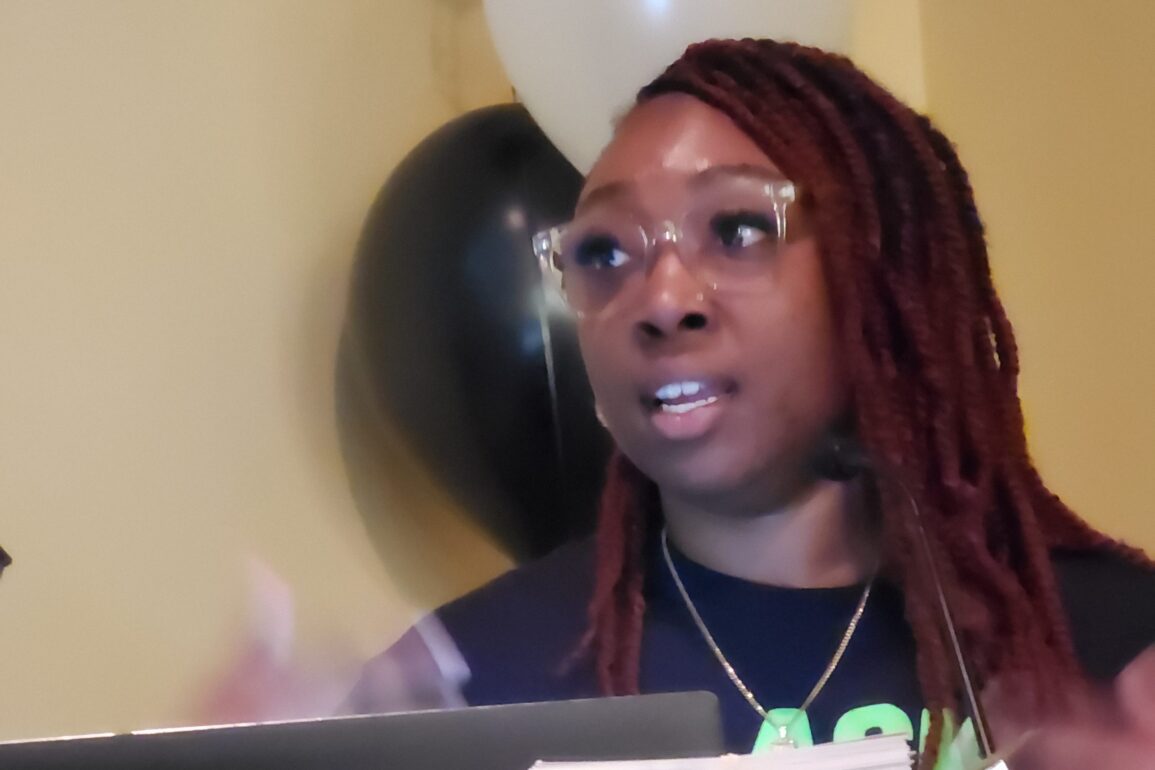With services stretched after the May 14 racist attack, Buffalo is being asked to fund more community youth centers and mental health counseling on the city’s East Side.

Dymone Barnwell, program director of BestSelf Behavioral Health’s Black Mental Health Response Team. Photo by I’Jaz Ja’ciel.
Two years after the May 14 massacre at Tops Supermarket on Jefferson Avenue, counselors and other community advocates are calling for expanded mental health services on Buffalo’s East Side.
What’s needed, they say, are more community centers serving as “safe spaces” where young people can go, as well as more mental health counseling and more funding for mental health services overall.
The advocates and counselors are requesting funds be included in the 2024-25 city budget Mayor Byron Brown and the Common Council are currently working on.
“Traditionally, there has always been a lack of any kind of service, and I’m not just speaking mental health,” said Dymone Barnwell, program director of BestSelf Behavioral Health’s Black Mental Health Response Team. “Even after the shooting, it was made very apparent that there were no health services accessible to our community in a way in which they needed it.”

Dymone Barnwell, program director of BestSelf Behavioral Health’s Black Mental Health Response Team, presents at the second annual Buffalo Black Caucus. Photo by I’Jaz Ja’ciel.
“The City of Buffalo, like many communities across the country, is facing significant challenges by compounding crises,” VOICE Buffalo, an organization focused on racial justice and equity, said in a statement. “Our youth, particularly those from BIPOC [Black, Indigenous, and People of Color] communities, are experiencing heightened levels of hopelessness and insecurity due to the impacts of Covid-19, social isolation, and the normalization of traumatic events like shootings and police brutality.”
The Black Mental Health Response Team was formed the day of the mass shooting, shortly after word of the tragedy spread through the city.
Money has been and remains a barrier to providing mental health resources to underserved communities, Barnwell said.
“There’s always a need for funding when it comes to these things,” she said.
The New York State Office of Mental Health gave BestSelf a grant in 2022 to continue funding the Black Mental Health Response Team. Last September, BestSelf received additional funding as part of a $3.9 million state grant meant to continue providing free services to community members impacted by the massacre.
Members of VOICE Buffalo recently urged the Common Council to allocate funding to provide more Black safe community spaces for city youth.
There are a number of youth community centers owned by the city or the Buffalo Municipal Housing Authority on the predominantly Black East Side, including the Martha Mitchell and the Delavan-Grider community centers, as well as the Lincoln Memorial Field House.
But advocates say more spaces are needed and are calling for the city to help fund them. No specific dollar amount was mentioned for additional community centers or the other mental health funding being requested.
The Council is currently reviewing Brown’s $618 million budget plan. While the Common Council cannot change the budget’s amount, its members can influence the way the money is allocated. The Common Council has until June 7 to adopt the budget.
Investigative Post reached out to Common Council President Chris Scanlon and city spokesman Michael DeGeorge for comment, but neither responded.
Barnwell also spoke to the importance of community centers, noting the particular benefit of communal spaces for young people.
“I remember as a kid, I was able to go over to the Martha Mitchell Center and have fun and be able to express myself with my peers and with the elders from the community, and that’s not something we see nowadays,” she said.
Community centers and similar spaces also present opportunities for individuals and organizations to offer mental health support and services in nontraditional settings, counselors say.
“Mental health services are not just sitting in front of a desk in front of a counselor explaining all our problems,” Barnwell said.
VOICE Buffalo representatives say it’s up to local government to understand and prioritize the need to develop more safe spaces in vulnerable communities.
“This funding should be separate from any police-based agenda and dedicated to hiring new full-time workers, outreach initiatives, and engaging programming tailored to the needs of local community youth,” the organization’s statement said.
Increasing access to necessary services will take a multi-pronged approach, the advocates say.
“The responsibility doesn’t fall on just one person or one set organization. I think the responsibility is on us as a whole in Buffalo, New York,” Barnwell said.
Some point to the aftermath of the May 14 tragedy as a time when local government, residents and organizations collaborated to bring an array of resources to Masten District residents impacted by the tragedy and the temporary closure of Tops Supermarket on Jefferson Avenue.
“If we continued that model, when we all put our resources together, I think we can make a huge impact and change how services are offered in that community,” Barnwell said.
posted 11 hours ago – May 17, 2024



